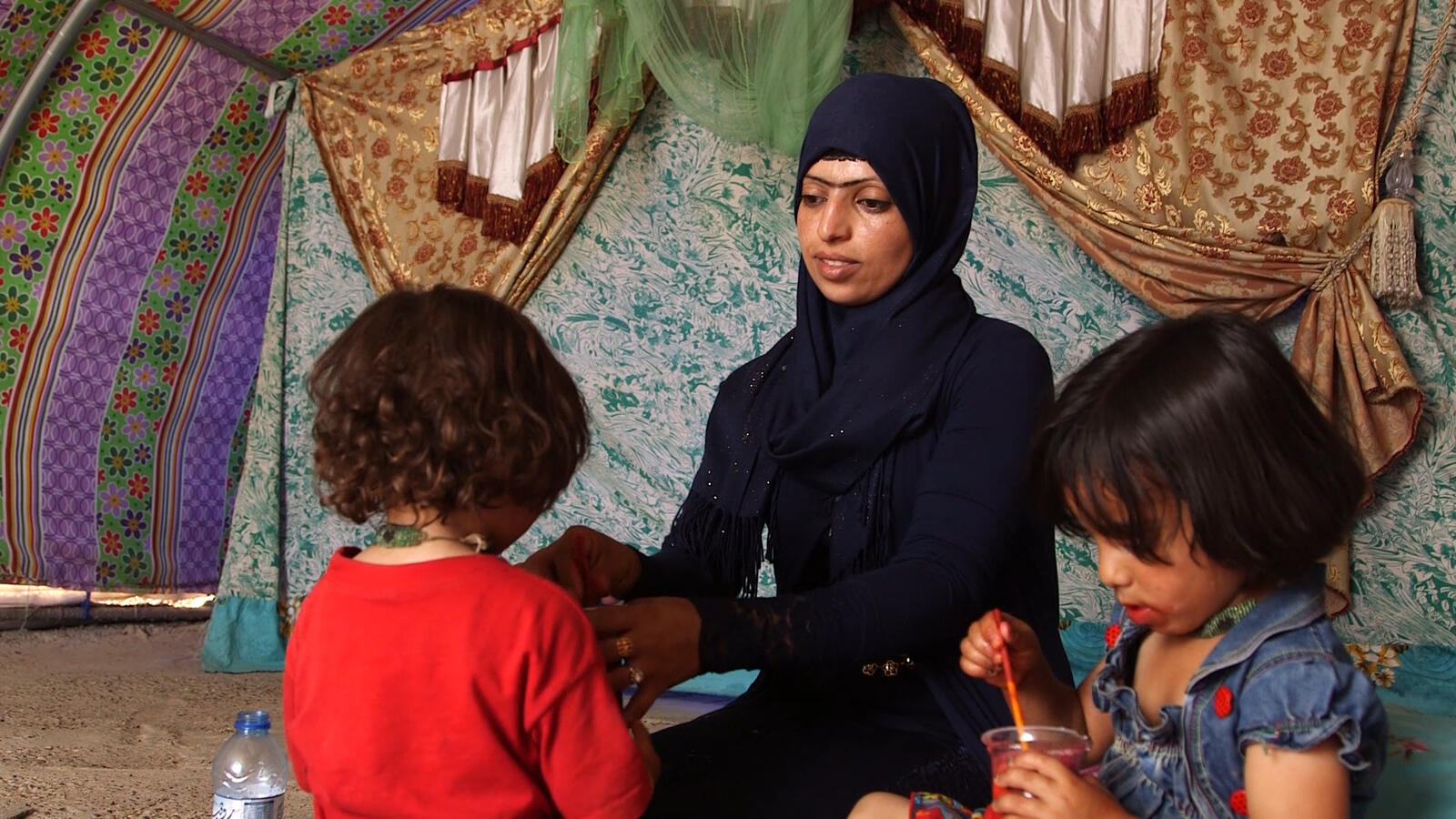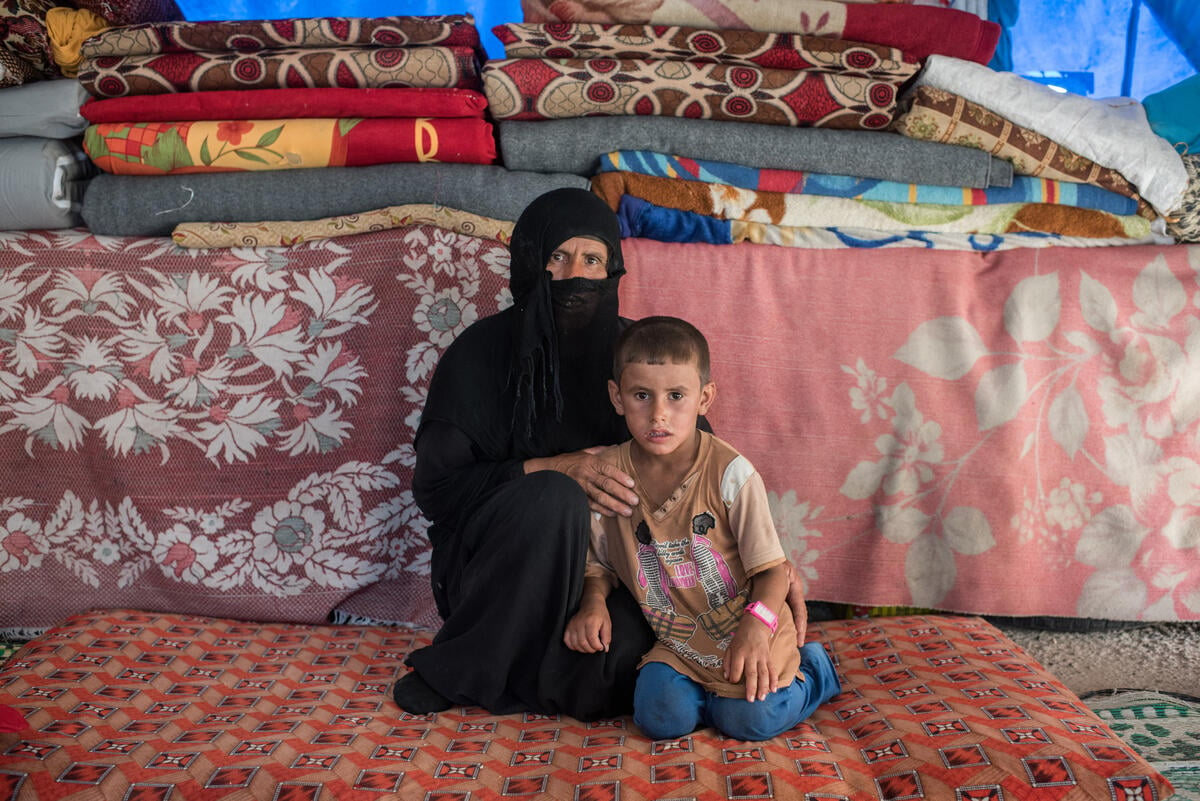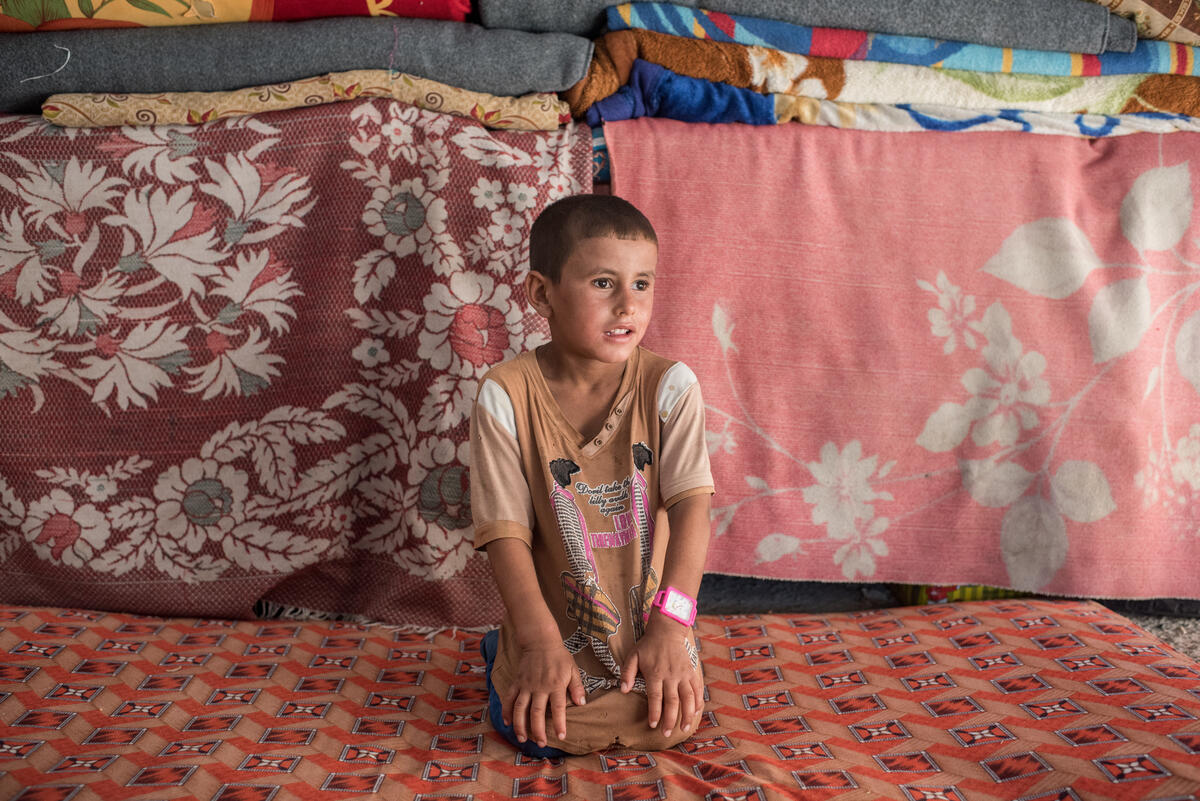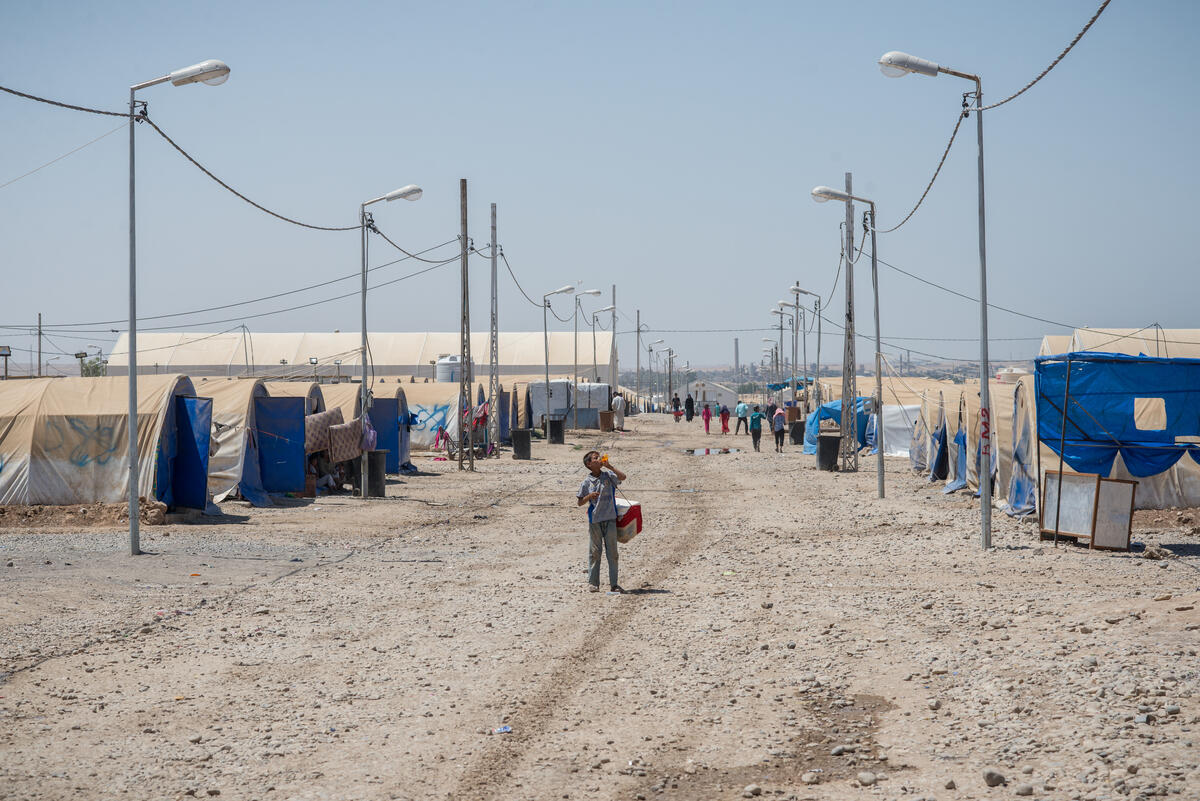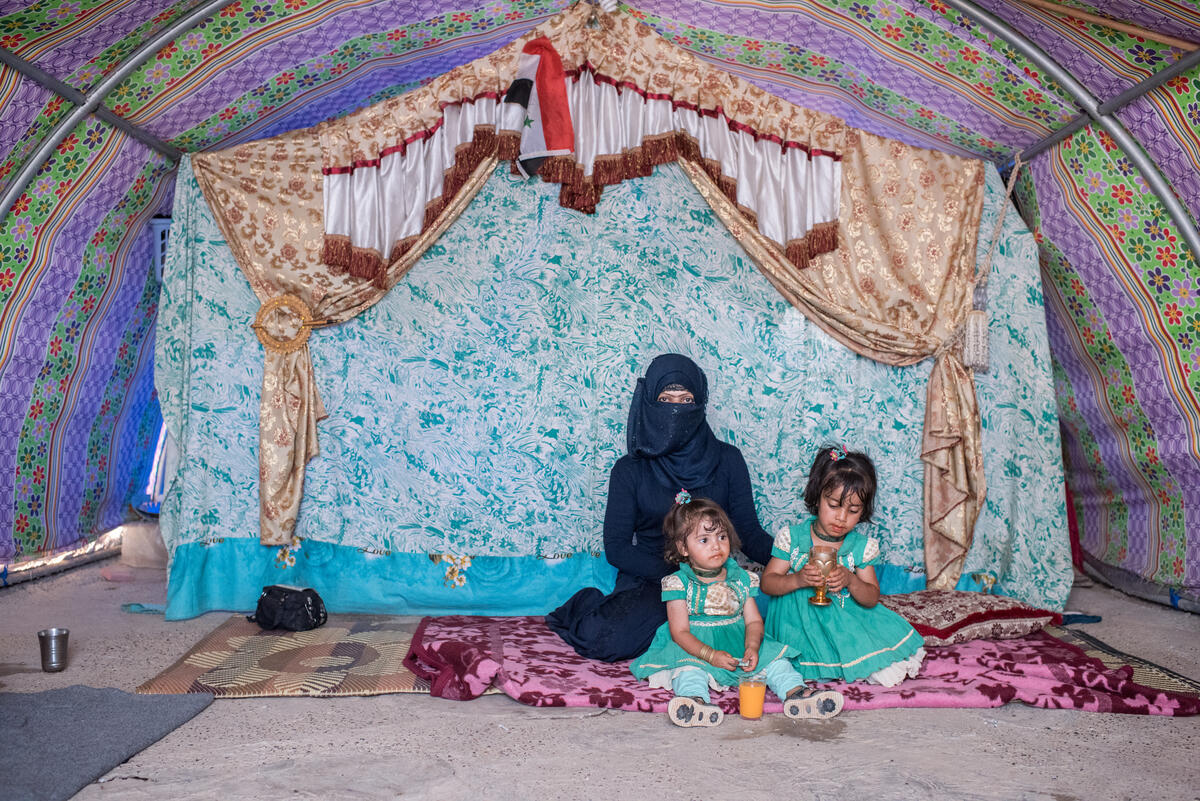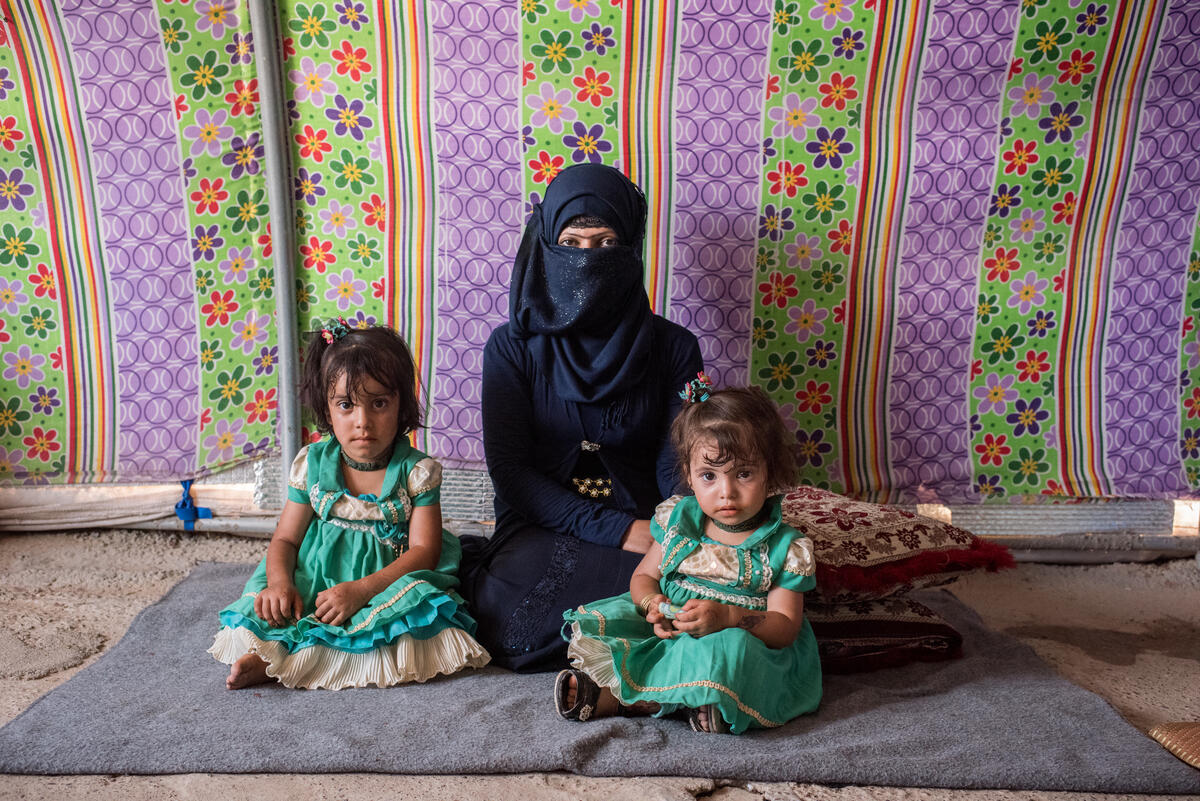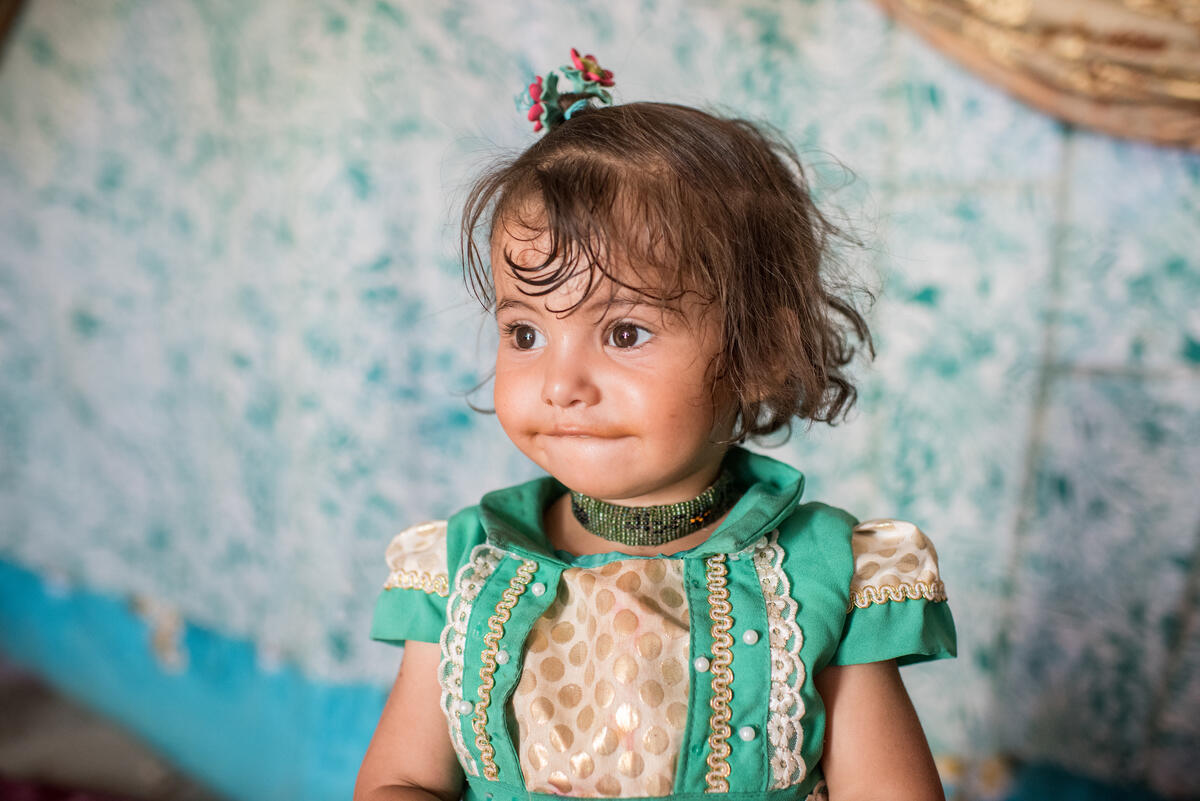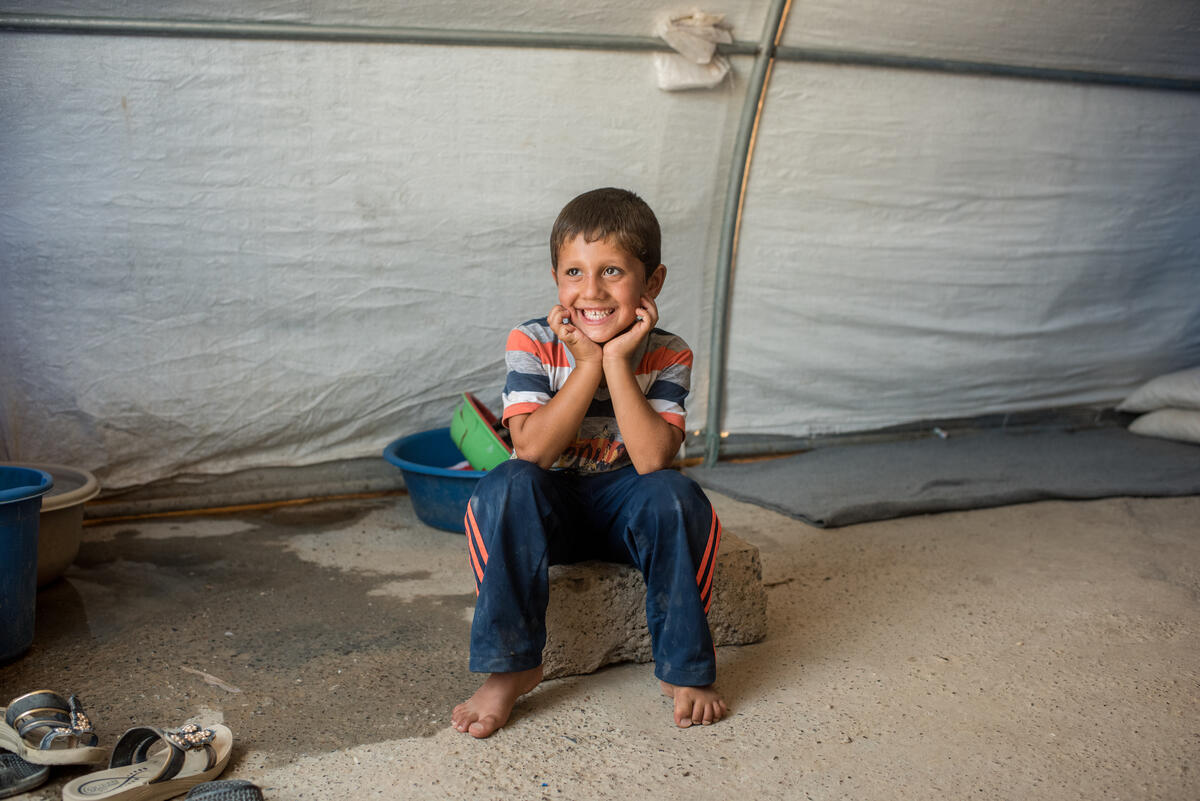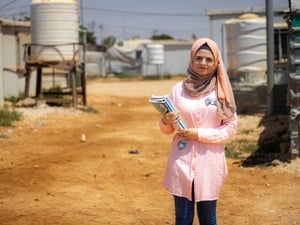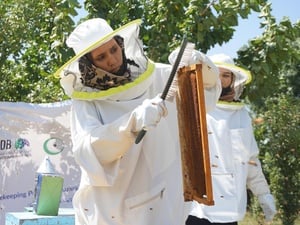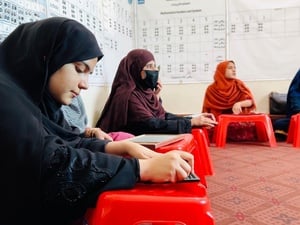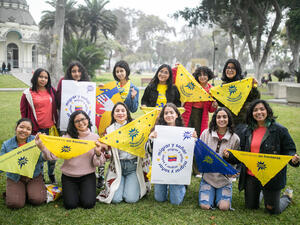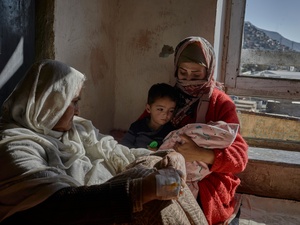Mosul's war widows face new challenges in displacement
Mosul's war widows face new challenges in displacement
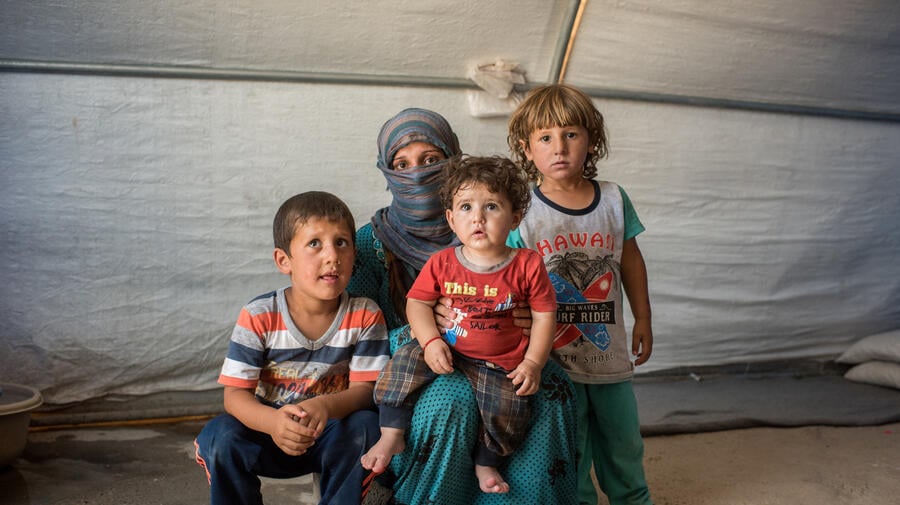
Sahar Amar, 22, and her children Hamood, 6, Amar, 3, and Zahra, 10 months.
HAMMAM AL-ALIL, Iraq – As she fled her neighbourhood in western Mosul, Asmaa Mahmood, 25, and her husband and their two young daughters came under heavy fire from militant extremists. They were captured and the men and women were separated.
“They took my husband and we had to just keep going,” she says. “We escaped and we hid in abandoned houses until we made it to the camp.”
Two weeks after reaching the safety of Hammam Al-Alil camp, she learned from other displaced Mosul residents that her husband had been killed. They had found his body and buried him.
“I was shocked and I suffered from psychological trauma and grief,” she says.
"I suffered from psychological trauma and grief."
Widows like Asmaa are among more than 900,000 people who have fled since the military operation to retake Iraq’s battle-ravaged second city from militants began nine months ago.
They number in their thousands. Many of their husbands were murdered by armed extremists who maintained a brutal grip on the city. Others were killed in air strikes, or were shot or blasted by artillery as they fled across the front lines.
Their husbands were often the families’ sole breadwinner. Without an income and often with children to support, Mosul’s war widows are among the most vulnerable to have been displaced during months of fighting for the once thriving city, parts of which have been flattened.
In Hammam al-Alil 2 camp, which is run by UNHCR, the UN Refugee Agency, and its partners, female headed households make up more than a quarter of the total – 1,250 out of 4,463 families or 21,462 people.
Since reaching the camp in April/May, Asmaa has received mattresses, a tent and items including kitchen utensils from UNHCR as part of the distribution given to new arrivals. Other help includes legal aid and reissuing of missing documents, including government ID, which is vital to receive benefits and move freely.
Like many of the widows, Asmaa is worried about her children’s future. Despite being illiterate, she wants to get a job to support her family.
She chats in her tent alongside her two young daughters, Rimah, four, and two-year-old Bedoor, who are dressed in matching green and white frilly dresses. Asmaa explains that she has to dress the girls identically to avoid arguments.
A much larger issue looms: she has yet to tell them that their father is dead, evasively saying that he was working and would soon be home.
“I am so exhausted worrying about the future of my children. Now I have no-one to rely on,” she says. ‘’All I want is to provide a good living for my two daughters. I don’t worry about myself. I just don’t want my daughters to feel different from any other girls who have a father.’’
At the beginning of March, Sahar Amar, a 22-year-old widow, heard that her neighbourhood in West Mosul was about to be retaken by Iraqi forces. She gathered up her three children and ran towards the Iraqi troops as militants shot at them.
Her parents helped her carry her three young children: Zahra, 10 months, Amar, aged three, and Hamood, six. Together, they ran down a road that was littered with the bodies of the city’s residents who had been gunned down by the armed group as they fled.
“We survived by a miracle only. We could see and hear the bullets flying close to our bodies,” she said. When she arrived in Hammam al-Alil 2 camp she received a tent and mattress, blankets and kitchen kits from UNHCR.
“I am so exhausted worrying about the future of my children."
Sahar explains that her husband was killed last year in a collision with a vehicle carrying militants. He had previously been in trouble with the armed group for selling forbidden cigarettes. She believes the crash was not accidental. When she heard the news of his death, she was days away from giving birth to Zahra.
During the displacement, her national ID card was lost. Her children still need government ID cards and birth certificates because those issued by the armed group are no longer valid. UNHCR is assisting widows, as well as all IDPs who lived under extremist rule, get the correct documentation.
Sahar was unable to buy her children gifts for Eid this year because she was no source of income. “I just want to survive and raise my children,” she said.


